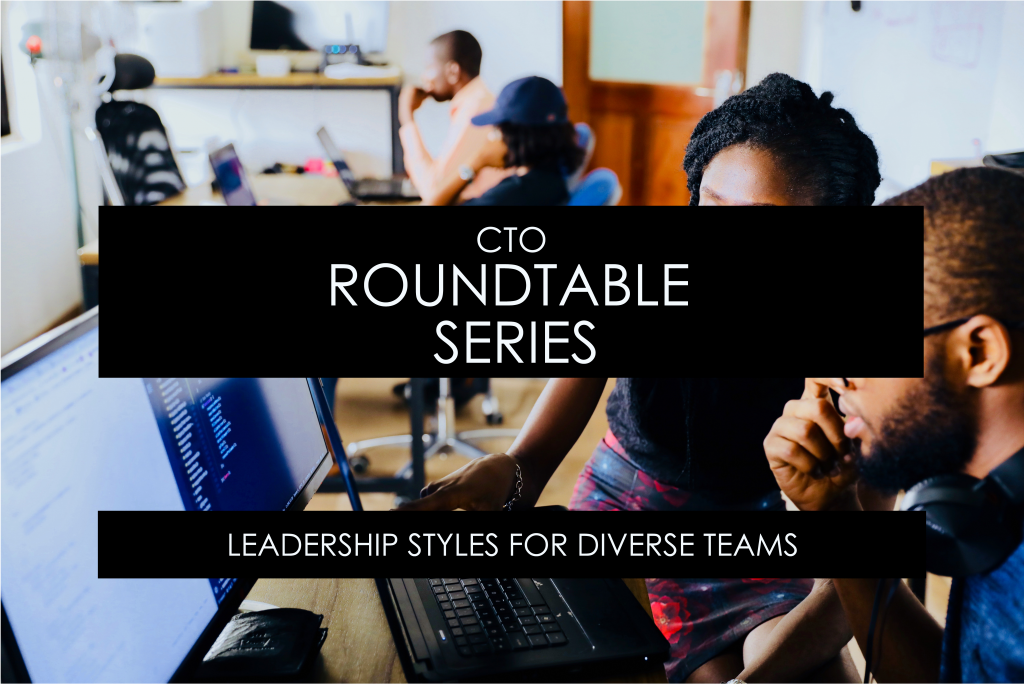
Leadership Styles for Diverse Teams
Date
Time
Location
In April, we hosted our first in-person CTO Roundtable in the Netherlands. Bringing together technology thought leaders in Amsterdam, the focus of this meetup was to discuss top tips and actionable advice around implementing effective leadership styles to encourage a successful and diverse engineering team.
It was great to meet and network in person again, with interesting insights shared by all in attendance. Below Co-Host and Moderator, Pavel Chunyayev, Senior Director of Cloud Operations at Feedzai, gives a rundown on the evening.
Diversity brings results.
It has been scientifically proven that diverse and inclusive teams deliver better results. However, striving to create diverse and inclusive teams is still considered more of an exception rather than the norm. Men are often not included in D&I discussions and a lot of C-levels have this perception that it’s mostly about the balance between men and women, rather than any other indicator.
How can we attract more diverse and inclusive candidates?
A key point was raised around awareness; more awareness is needed. Training to be more diverse and inclusive during the hiring process is vital. Women often think they need to tick all the boxes on a job description, so it seems logical to reduce these requirements. Others thought this might not be the best solution and that it should be more important to find the right professionals with the right skills, rather than ‘lowering the bar.’
Another aspect is core values. Most companies have core values around diversity and inclusion, but they can be misleading and ‘just posters on the wall’ rather than implemented values throughout the business. This needs to change. Covid-19 has shifted lot of perceptions and plenty of engineers now want to work for a company with good values that are truly lived by.
A different argument was that it’s more important to create a shared group identity: an engineering team identity. In this case it’s more essential to consider how you think and what you are focused on rather than your background or preferences. Such teams can be very diverse, inclusive, have a psychological safe environment along with shared goals and the urge to deliver things.
For a lot of people it’s hard to talk about identities. And this leads to even bigger issues. People are afraid to ask about different cultures or views. They don’t allow others space to express themselves. And this brings more confusion instead of understanding.
Remote working environments
It was a consensus around the table that it’s even harder to create a diverse and inclusive environment when the team is remote. One piece of advice was that a remote team should be in at least 3 locations to create the same experience for everyone. Managers and team members need to be trained, and as mentioned, more aware about D&I in a remote setting. For example, only giving advice when asked and providing much more feedback to each other.
Of course, the old rule “don’t work with assholes” still applies. And those people normally don’t care if they work in the office or remote. They can rapidly ruin even the best team.
Skills based promotion
Finally, it’s also important to promote people based on their skills. A rule of thumb here is to have the same criteria for hiring as for promotion. Some people think that compensation transparency can solve this issue. Others highlight that it’s important to promote everyone on potential and people who go the extra mile. Everyone is responsible for the company culture. It has to start from the management team, but it equally needs to go bottom up in order to create a diverse and inclusive environment throughout.
If you are interested in speaking at our next event, or attending one don’t hesitate to contact Third Republic or even the host Daisy Perryer directly.